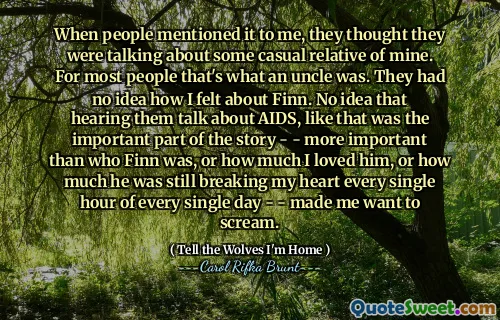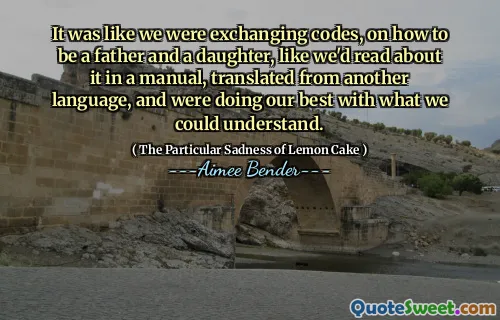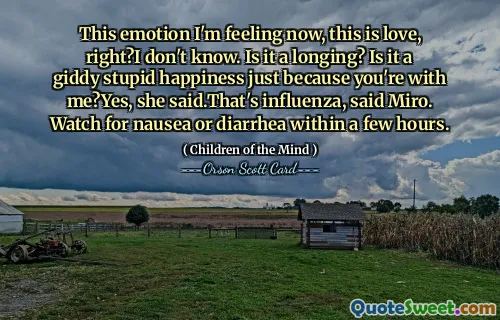
When people mentioned it to me, they thought they were talking about some casual relative of mine. For most people that's what an uncle was. They had no idea how I felt about Finn. No idea that hearing them talk about AIDS, like that was the important part of the story - - more important than who Finn was, or how much I loved him, or how much he was still breaking my heart every single hour of every single day - - made me want to scream.
This passage vividly captures the profound disconnect between external perceptions and internal realities. The narrator feels misunderstood, as others reduce a deeply personal relationship and grief to mere facts or societal issues, in this case, AIDS. To many, Finn's connection might just be a familial label—an 'uncle'—but for the narrator, Finn was a person of immense significance, love, and emotional pain. The mention of AIDS amplifies the confusion and discomfort surrounding the subject during a time when stigma and fear were rampant, further complicating the narrator's desire to be recognized for who Finn truly was beyond the disease. This excerpt resonates powerfully because it exposes a universal human struggle: the need to be understood for our genuine feelings and connections, rather than diminished or obscured by societal narratives. The narrator's frustration echoes in every line, evoking the pain of love that is unrecognized or overlooked, especially when societal issues overshadow the human stories behind them. The emotional weight conveyed underscores the importance of empathy and the danger of reducing complex stories to simplistic stereotypes. Reading this evokes a sense of shared human vulnerability, reminding us how often others' perceptions can threaten to sever or diminish our deepest connections, and highlights our innate need for acknowledgment, understanding, and compassion.






